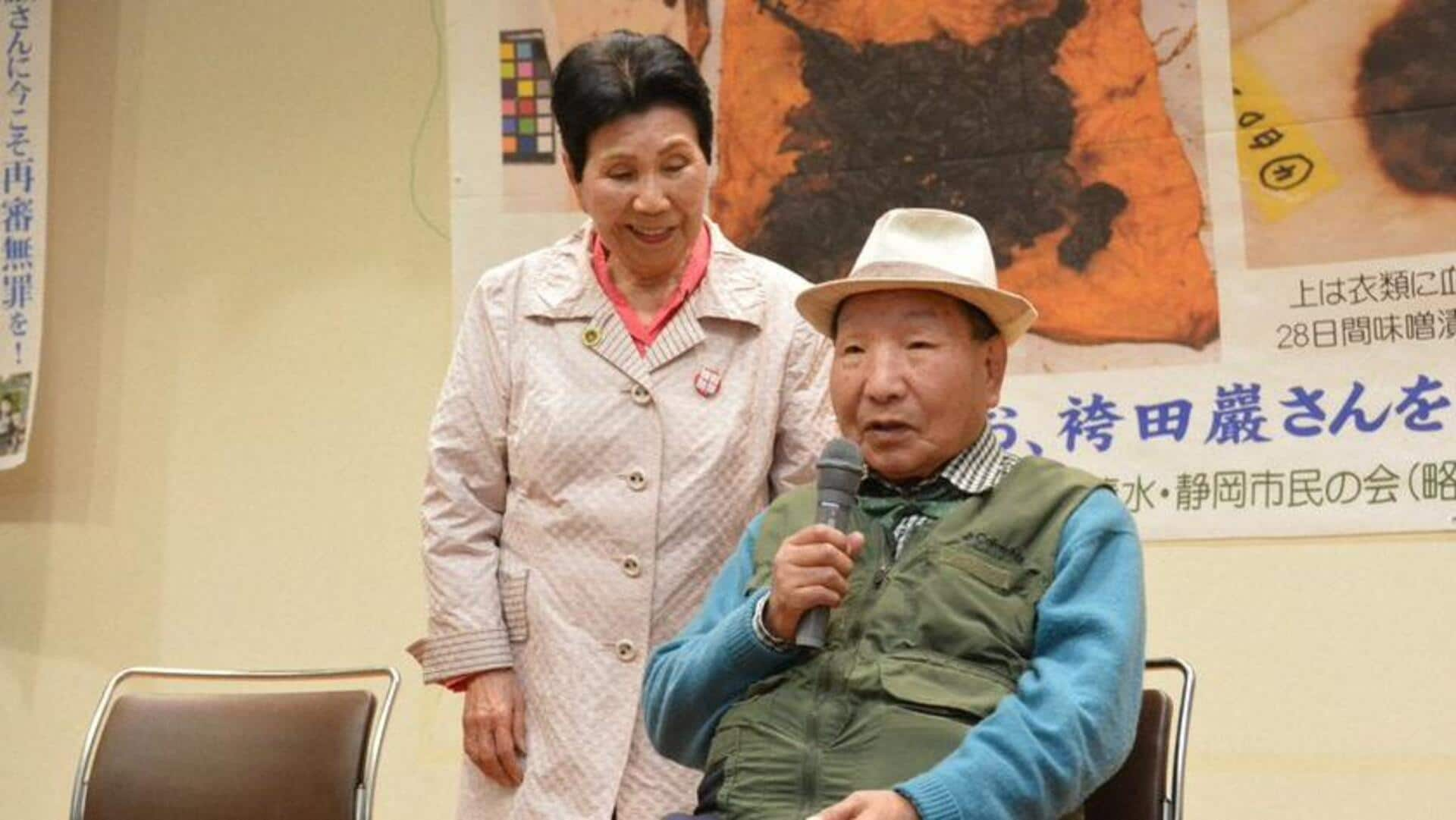
Japan: World's longest-serving death row inmate now declared innocent
What's the story
Iwao Hakamata, an 88-year-old Japanese man who has spent over five decades on death row, was declared innocent by a court in Japan on Thursday. Hakamata was wrongfully sentenced to death in 1968 for the murder of his boss, his wife and their two teenage children. He was recently granted a retrial amid suspicions that investigators planted evidence that led to his conviction for the murders.
Evidence dismissal
Court dismisses key evidence, acquits Hakamata
Judge Kunii Tsuneishi of the Shizuoka District Court dismissed the blood-stained clothing used as key evidence in Hakamata's conviction. The judge stated, "The court cannot accept the fact that the blood stain would remain reddish if it had been soaked in miso for more than a year." He further added that these bloodstains were processed and hidden by investigating authorities long after the incident, declaring Hakamata innocent.
Life trajectory
Hakamata's journey: From boxer to prime suspect
Hakamata, a former professional boxer, retired in 1961 and began working at a soybean processing plant. His life took a tragic turn when his boss and family were found murdered. Hakamata became the prime suspect due to his close proximity to the victims. He was accused of murdering the family, setting their house on fire and stealing 200,000 yen. After enduring days of intense questioning, he initially confessed to the crimes but later retracted his statement, claiming police coercion.
Retrial revelations
Retrial reveals no DNA match, questions conviction
He was sentenced to death in a 2-1 decision by judges, despite his claims of police evidence fabrication. He spent over half his life awaiting execution before new evidence led to his release a decade ago. A DNA test on blood found on the trousers revealed no match to Hakamata or the victims, leading the Shizuoka District Court to order a retrial in 2014.
Release
99% of cases end in convictions in Japan
Hakamata was released while awaiting his court date due to his fragile mental state and advanced age. The Tokyo High Court initially denied the plea for a retrial for unexplained reasons, but in 2023 agreed to give Hakamata another opportunity following an order from Japan's Supreme Court. Retrials are uncommon in Japan, where 99% of cases end in convictions, according to the Ministry of Justice website.